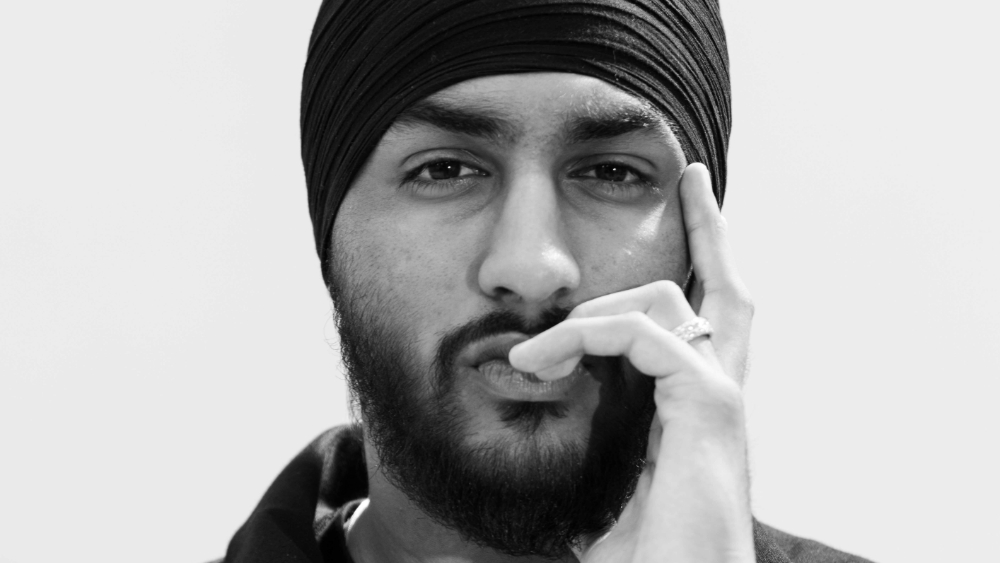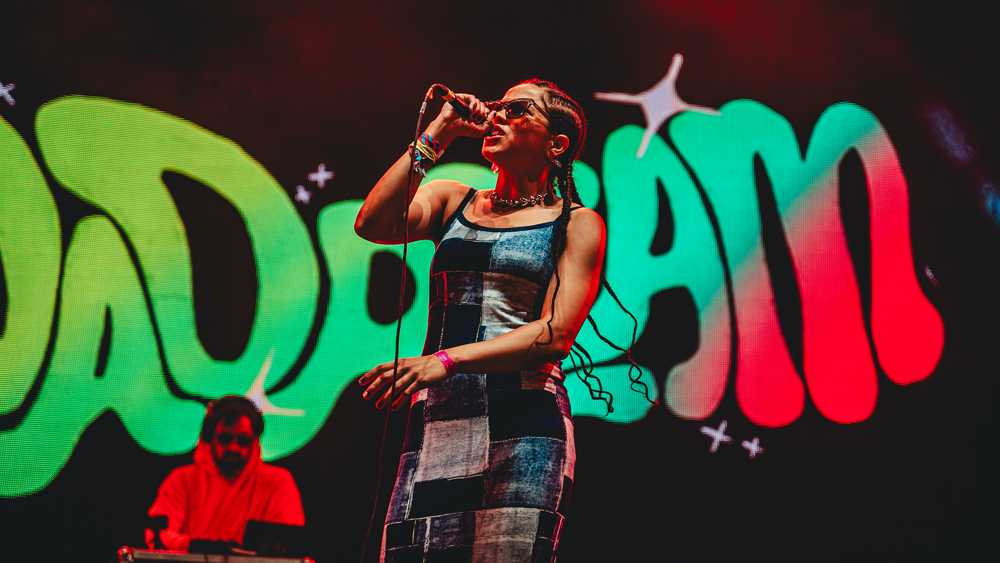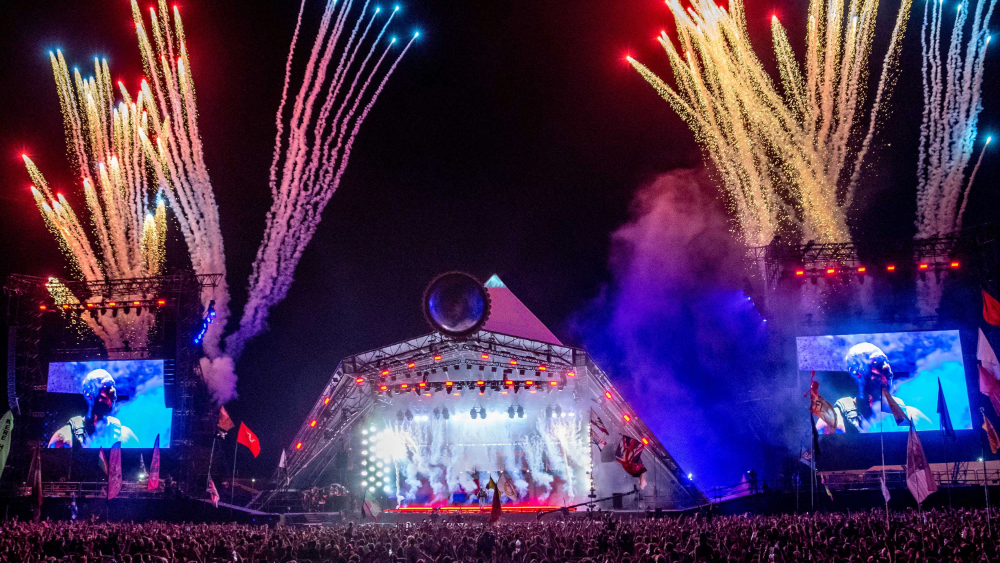Master Peace wants to be the alternative kid who cracked the mainstream. ‘If [my music] can sit in the world of a Dev Hynes, Santigold or M.I.A., then that would be impressive for me,’ he tells M, typifying the ambition of the artist born Peace Okezie.
Peace followed up the release of his debut album How To Make a Master Peace (which broke into the UK top 30) by picking up the prestigious Rising Star Award at The Ivors in May 2024. Now, having ‘manifested’ that particular prize, he’s already thinking about the next accolade.
‘It’s the way I was brought up,’ he says. ‘Because I’ve come from nothing, the crazy things that a normal artist would be happy about, I’m always looking at, like, “How can I top that? What’s the next thing?”’
Peace’s broad outlook tallies with his unique way of melding genres and influences. Take, for instance, the 2018 clip of him rapping over an instrumental of A-ha’s Take On Me for grime series The Lift, or his ability to splice together nostalgic genres including nu rave, electro house and synth pop on tracks such as Eyes On You and Shakedown. The resulting sticky, sweaty sound takes further influence from the Skins-inspired teen house parties of his youth, which were soundtracked by the likes of Bloc Party and early Calvin Harris.
'Playing live is my favourite thing to do.'
He’s now experiencing full-circle moments from that era. Peace supported Kasabian, a band he grew up listening to, during the latter’s outdoor homecoming gig in Leicester last summer. ‘[Serge Pizzorno] said, “I listen to your album all the time,” and I was like, “You were an influence on that album!”’
His childhood also had a bearing on this push and pull of ideas. Growing up in south-east London before relocating to the sleepy suburb of Morden, there was little musical common ground between his school friends, who listened to The 1975 and Arctic Monkeys, and his ‘hood’ friends. He was the only one, he realised, who listened to both Paramore and rap: ‘I’ve got so many influences that I can make a good rap song, but also make a good indie song, a dance song... I’ve always been tapped into different cultures.’
As someone who’d jump at the chance to get up in front of the class at school, performing came naturally to Peace. ‘Playing live is my favourite thing to do,’ he says. ‘I think you can read by the vibe I give off when I’m performing that I’m having a great time, because I genuinely am. I’m not one of those artists who is scared about it, because that’s the stuff that I enjoy. So I want to get into it properly, and not hold back.’
Peace has just been named as a finalist in Glastonbury's Emerging Talent Competition 2025. It follows on from him joining The Streets’ Mike Skinner on the festival's Other Stage in June 2024 to perform their collaboration Wrong Answers Only. ‘It was a sea of people out there, and I knew it was going to be on TV, so in my head I was thinking “Yo, if I fuck this up, I’m cooked.”’ Any post-performance anxiety melted away as soon as he got off stage, though, as Ellie Goulding came up to tell him: ‘You smashed it.’
Peace has been repeatedly referred to as a ‘rapper’, despite it not being an accurate label for either his sound or his MO. While he initially started out in that world as part of an underground rap collective, he soon realised that, creatively, he was more drawn to pop and indie. That transition wasn’t without its own drawbacks (‘Everybody in that scene was friends with each other… whereas me, I’m on my own’), and it’s something Peace has written with Rachel Chinouriri for a forthcoming single that explores feeling overlooked as a Black artist in a predominantly white scene.
‘[Rachel] said, “It just feels like that’s how it is,”’ Peace explains. ‘It’s very hostile, trying to get your flowers. I don’t know how it was for Blood Orange and all those other people. For me, though, it felt long; I was just like, “Bro, is this even worth it?”’
As well as Rachel, Peace has recently worked with the likes of TSHA, Metronomy and US artist Wale — the latter collaboration coming to fruition after the rapper heard Peace’s music playing on BBC Radio 1. This expansion of his creative network is mirrored by his burgeoning fanbase, who, Peace says, continue to surprise him.
‘Even this past weekend, I didn't even know people still did autographs,’ he says. ‘There were so many people coming up to me asking, “Can you sign this, can you sign that?”’
'When I performed at Glastonbury with Mike Skinner, the crowd was a sea of people.'
Having found his footing in the industry, Peace remains grateful to organisations such as PRS for Music in terms of the support and resources they can offer to music creators at every stage of their career. ‘It’s really helpful for independent artists, giving them funding and helping them get on their feet a bit,’ he says. ‘I’ve seen PRS help smaller artists get their foot in the door, even by helping them buy equipment. I think that’s sick.’
For an artist as ambitious as Master Peace, it’s no surprise to hear that he’s already got his eyes on the next prize: a hit single.
‘I want to smash! I want to hit!’ he says. ‘It’s like, “Cool, you’re an established artist, that’s great”. But I want a tune that’s just ringing off everywhere. For me, that’s the next thing. But only time will tell!'
This article is taken from M's special Future Makers edition — you can read the magazine in full here.





